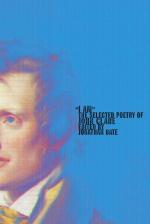|
This section contains 8,687 words (approx. 29 pages at 300 words per page) |

|
SOURCE: “John Clare and the Sublime,” in Criticism, Vol. XXIX, No. 2, Spring, 1987, pp. 141-61.
In the following essay, Strickland argues that Clare was “poetically more conservative” than his Romantic peers, noting the “absence of conventional trappings of the naturalistic sublime” in his poetry.
As pitiful as the representation of John Clare in major anthologies is, the image of the poet has been further distorted by their emphasis on his mad-poems, the most fascinating, but neither the best nor most representative, of his works. Eric Robinson's and David Powell's recent Later Poems of John Clare1 is invaluable not only for its scholarly presentation of previously unpublished poems but for its clarification of the context of the visionary works. The edition established, against the sentimentalism of many critical observations, that Clare suffered a serious decline in poetic power with the onset of madness, particularly after the mid-1840s. It also...
|
This section contains 8,687 words (approx. 29 pages at 300 words per page) |

|


